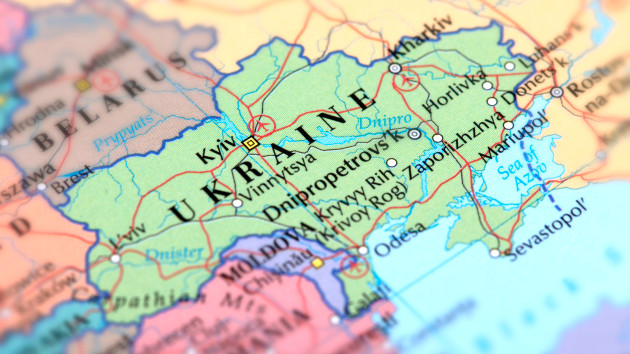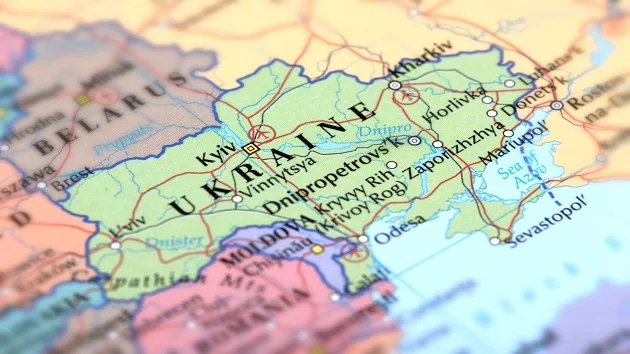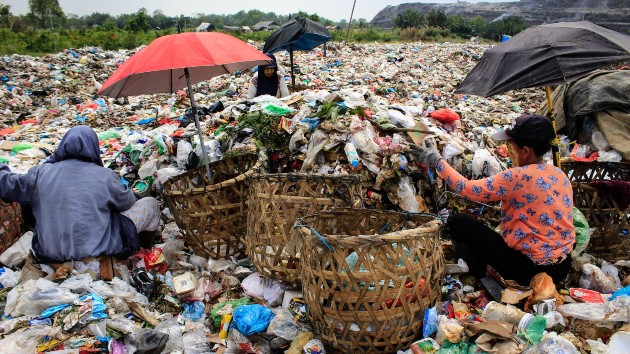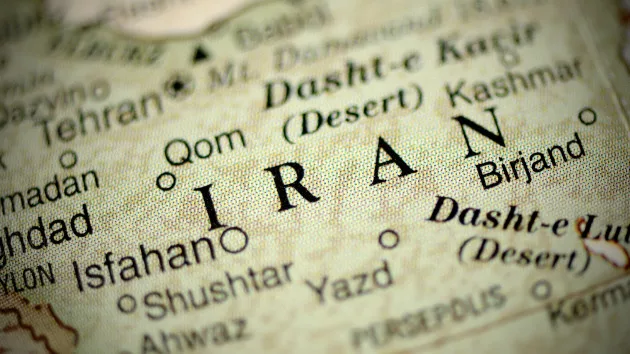(WASHINGTON) — For months, the U.S. has warned that the Kremlin would move to annex occupied areas of Ukraine. But now that Russian President Vladimir Putin on Friday has certified the annexation of four territories into the Russian Federation, all eyes turned to the Western response to the provocation.
Within minutes of Putin’s action, President Joe Biden shot back.
“The United States condemns Russia’s fraudulent attempt today to annex sovereign Ukrainian territory. Russia is violating international law, trampling on the United Nations Charter, and showing its contempt for peaceful nations everywhere,” he said in a statement.
“Make no mistake: these actions have no legitimacy. The United States will always honor Ukraine’s internationally recognized borders. We will continue to support Ukraine’s efforts to regain control of its territory by strengthening its hand militarily and diplomatically, including through the $1.1 billion in additional security assistance the United States announced this week,” he said.
He announced new sanctions, in conjunction with Western allies and partners.
“These sanctions will impose costs on individuals and entities — inside and outside of Russia — that provide political or economic support to illegal attempts to change the status of Ukrainian territory. We will rally the international community to both denounce these moves and to hold Russia accountable. We will continue to provide Ukraine with the equipment it needs to defend itself, undeterred by Russia’s brazen effort to redraw the borders of its neighbor. And I look forward to signing legislation from Congress that will provide an additional $12 billion to support Ukraine,” Biden said.
The European Union has already moved to implement a host of new trade restrictions. At the United Nations, a U.S. sponsored resolution condemning the land grab will soon be introduced before the organization’s Security Council.
But so far, financial restrictions and public shaming have done little to constrain Putin’s imperialistic goals, prompting Ukrainian officials to call for a shift in strategy.
Ukraine’s President Volodymyr Zelenskyy has pushed the U.S. to designate Russia as a state sponsor of terrorism, which installs secondary sanctions — penalizing any business or entity that does business with the country. So far, the Biden administration has been adamantly against it, saying it could inhibit efforts to move aid to Ukraine and other needy countries, as well hinder any future peace talks.
Still, Kyiv has been undeterred.
David Arakhamia, one of Zelenskyy’s closest advisers, during a visit to Washington on Thursday, said that he felt “more optimistic” after meeting with lawmakers, saying he felt Congress was continuing to “put political pressure” on the White House to shift its policy.
“We want to see as much financial impact on Russia as possible,” Arakhamia said during a press conference. “If we make Russia poor, that means we increase our chances for Ukraine to win.”
Oleksandra Ustinova, a member of Ukraine’s parliament, argued at the same event that the administration also needs to specifically say how it will punish Putin.
“It is very important for us that the United States exactly what they’re going to do before Putin makes the next steps,” Ustinova said. “Because he’s a bully. He’s testing how far he can go.”
Ustinova said Ukrainian officials had directly pushed the U.S. government to “state how hard you’re going to hit him” and to crack down harder on Russian financial institutions.
“That would make him think twice,” she said.
When it comes to Putin’s nuclear threats, the administration has been especially stringent, sticking to its policy of “strategic ambiguity” — declining to say just how the West might respond to the ultimate aggression — as an attempt to walk the line between deterrence and escalation.
Arakhamia said he was hopeful NATO would spell out specifically what it would do in that worst-case scenario and that Ukraine would receive collective defense guarantees, but either would mark a significant shift and one that could have weighty implications for the conflict.
A more likely and immediate response is expected to be an infusion of military and economic aid from Congress, which is set to pass a stopgap funding bill with more than $12 billion more for Ukraine on Friday. But already, some of the recent rounds of aid announced have included weaponry that still needs to be produced, meaning it won’t make it to the battlefield for months or years — and signaling surpluses in allies’ armories are running low.
“We think it’s high time the United States and other allies actually warm up production up to the scale of wartime,” urged Anastasia Radina, another member of Ukraine’s parliament. “Because it is now wartime for the whole civilized world.”
“No one has seen anything like this since World War II,” said Ustinova.
Copyright © 2022, ABC Audio. All rights reserved.






